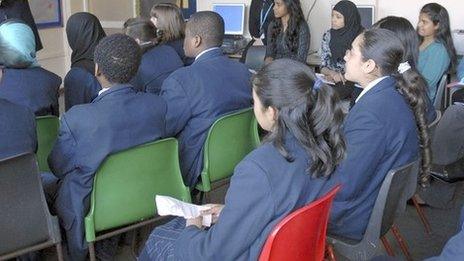Secondary school places for all 'undeliverable', councils warn
- Published
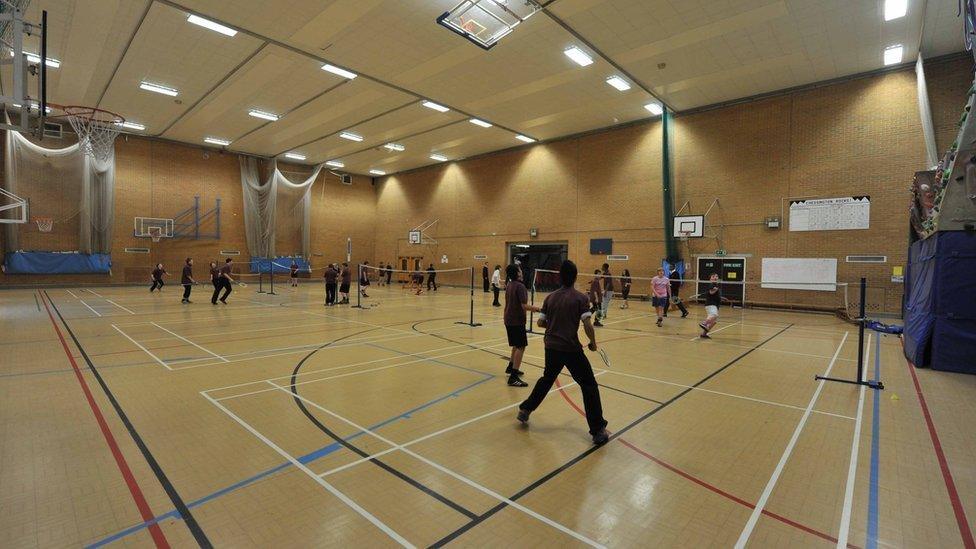
The school places squeeze is about to hit secondary schools
The legal duty of councils in England to ensure that every child has a school place could soon become undeliverable, local authorities have warned.
With a population bulge about to hit secondary schools, councils want powers to open new maintained schools and to compel academies to expand.
Thousands of children are due to hear on Tuesday which secondary school they will attend from September.
However the government says the warning amounts to "scaremongering".
The population bulge which has put primary schools under pressure will start hitting secondary schools this year, according to official figures, external.
Last year councils had to provide 2,740,000 secondary school places, but this will rise to 3,287,000 by 2024, the figures predict.
And analysis from the House of Commons library, for the Labour Party, shows one in six mainstream secondary schools are already at or overcapacity.
Free schools
The Local Government Association (LGA) says councils will struggle to meet the demand under the current system.
Under government rules, all new state schools must be "free schools", outside local authority control.
But the LGA wants councils to be able to open schools themselves and to require academies, which make up 60% of secondary schools and decide their own admissions policies, to expand as needed.
The LGA says councils have already created an extra 300,000 primary school places but face a new challenge as pupils reach secondary level.
"Councils will do everything they can to rise to the challenge of ensuring no child goes without a place," said Roy Perry, chairman of the LGA's Children and Young People Board.
A Department for Education spokesman said the government had confidence in the current system.
"Where local authorities identify the need for a new school they are required by law to invite proposals to run a new free school and then forward these to the department to decide who would be best placed to do this," the spokesman said.
"We would encourage councils to work with regional schools commissioners, using their combined local knowledge, to identify top sponsors for new schools in their area, and we are confident there are enough quality sponsors to meet demand."
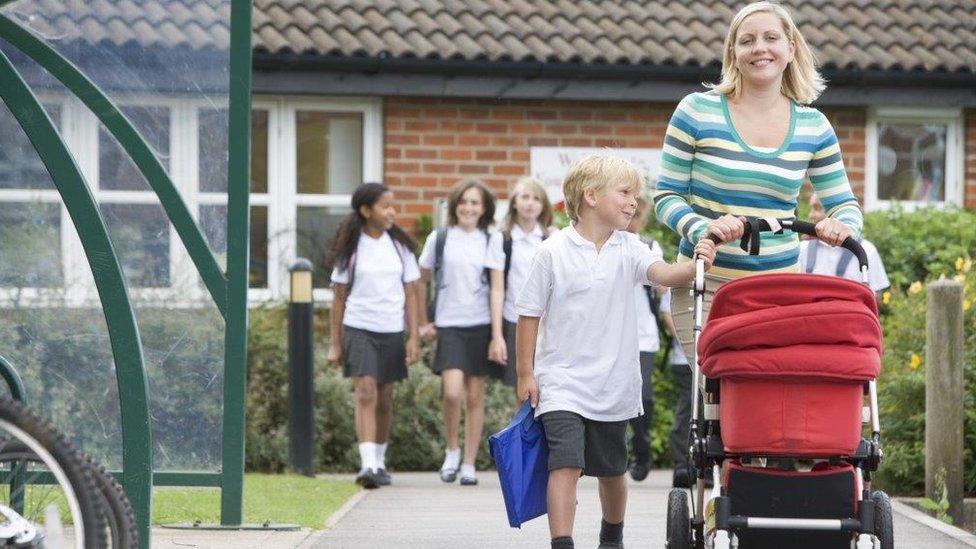
A population bulge has put already pressure on primary places
But councils said they often struggled to find sponsors for free schools in time to meet demand for places.
Birmingham City Council, where the supply of secondary places is already tight, called the current system "a mess".
The council found secondary places for all pupils who applied last year, external, but 11% of those were in another local authority area and 6.6% were in schools which families had not included on their list of six preferences.
Birmingham's cabinet member for children's services, Brigid Jones, said the council spent "a lot of time working out what we need, but convincing some academies and free schools to open in the right places at the right times can be a nightmare".
'Not a surprise'
Mary Bousted, general secretary of the Association of Teachers and Lecturers, accused the government of letting children down.
"The increase in pupil numbers is not a surprise," she said.
"The free school experiment has failed in its most important purpose; ensuring every child has a school place."
The National Union of Teachers said it was "quite clear" that local authorities needed the authority and funding to open new schools.
"Failure to do this will result in yet more chaos, children being taught in Portakabins, larger class sizes and many having to take places in schools away from their neighbourhood," said general secretary Christine Blower.
Shadow education secretary Lucy Powell said: "It is time for ministers to reinstate local input on planning for new places and remove the bureaucracy that councils face when it comes to opening and expanding schools.
"Families deserve a better approach to planning for school places, otherwise we will continue to see many more children crammed into over-large class sizes and learning in unsuitable spaces."
Solicitors Simpson Millar, who specialise in admissions appeals, said their own research indicated that demand for secondary places this year would begin to outstrip supply.
Emma Pearmaine, the firm's director of family services, said missing out on a preferred school place could be detrimental, particularly in cases of family breakdown or where children had special educational needs.
- Published15 January 2016
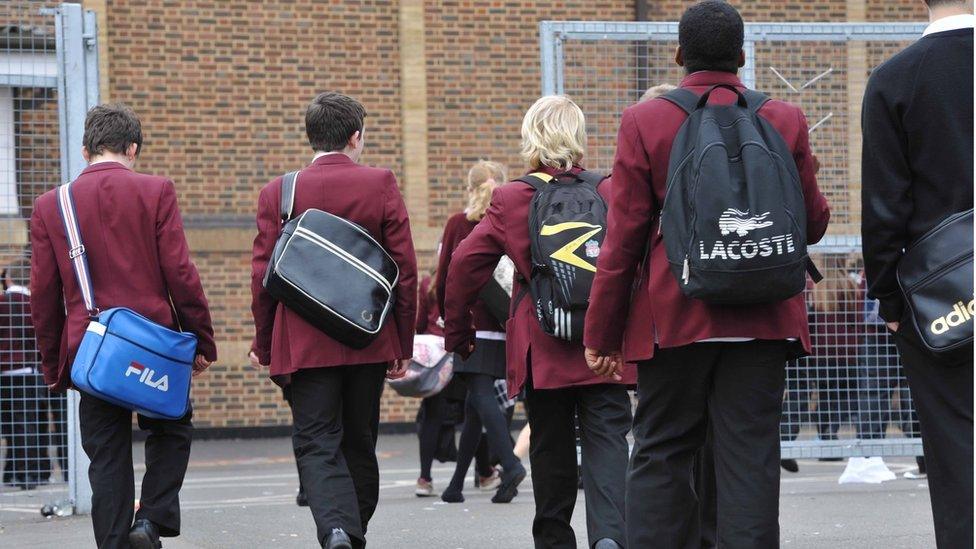
- Published9 October 2015
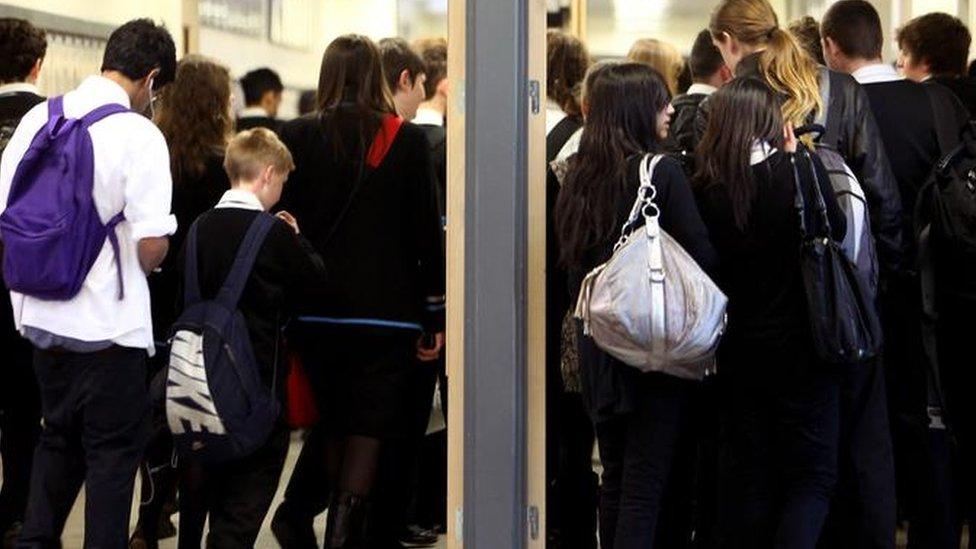
- Published2 September 2015
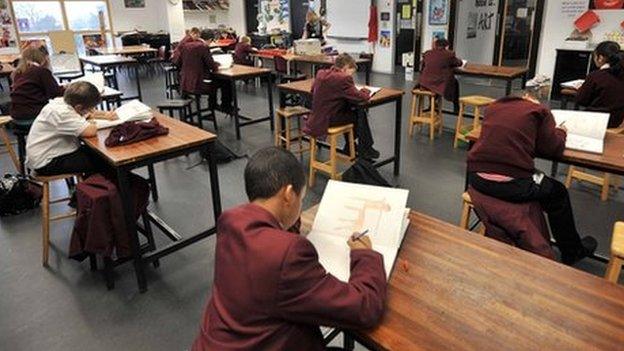
- Published22 July 2015
